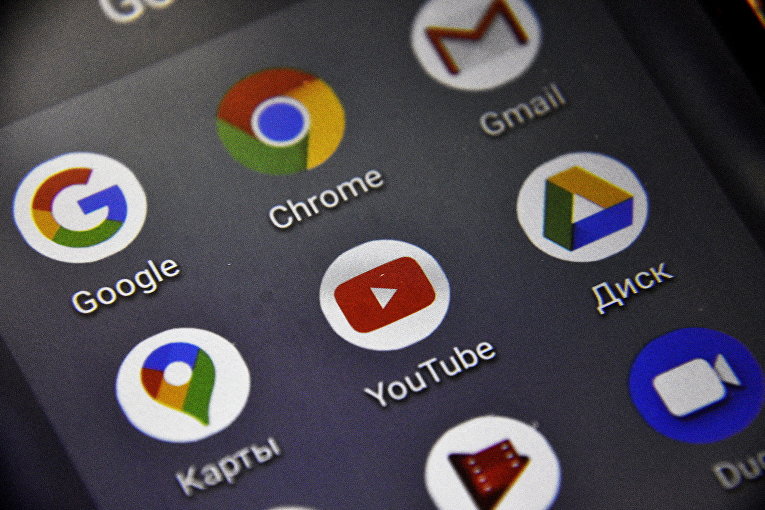MOSCOW, July 29 (RAPSI) – Russia needs to immediately adopt a law on self-regulation of social networks, according to First Deputy Chair of Russia’s Civic Chamber Commission on Development of the Information Community Alexander Malkevich.
The statement was made at a hosted by the Civic Chamber round table on the topic of new digital censorship allegedly practiced by Google, where the participants defined the corporation’s role as that of an aggressive monopolist brazenly violating national laws outside the U.S.A.
The topicality of the issue is determined by the frequent unjustified blocking of Russian media outlets, according to the Commission Chair Rifat Sabitov.
In his turn, Malkevich reminded that Google is not only the most popular search engine, but also owns YouTube, the largest video hosting services provider with registered audience making 79% of all internet users as per data for year 2019. Although formally Google pursues the policy of respect for freedom of speech, in practice its representatives in the harshest possible way censor user-generated content at their discretion under the guise of combating disinformation and manifestations of hate.
These conclusions, Malkevich says, are based on the results of a study conducted by the Foundation for Protection of National Interests citing numerous facts of political censorship and outlining the scheme by which Google has in fact legitimized its soft censorship practices on the internet. The researchers allege that Google can detect and influence on the global scale how the audience accesses and consumes media content published on the internet; the corporation, according to the study, is potentially able to manipulate the audience and abuse its position with, among other things, the aim to keep its near-monopoly in control over search requests traffic and dissemination of video content.
The study also complained that YouTube directly and indirectly censors any content created with participation of Russia’s authorities and uses measures aimed to form negatively biased attitude of the audience to Russian sources of information; at the same time, YouTube allegedly fails to remove fraudsters’ resources and information prohibited by law. The authors of the study are also concerned with the regulations on collection and processing of personal data because of a close cooperation they claim is underway between the corporation and the U.S. authorities. The study cites numerous leaks of personal information.
Malkevich noted that Russia needs to follow the example of many other countries undertaking measures to protect their national information borders. In this, he said, the Chamber was going to urge the Federal Assembly as concerns the adoption of the law on self-regulation of social networks and to work on making foreign platforms develop and offer user agreements defining the responsibilities and rights of the parties thereof.
The rights activist reminded the audience that Russia is the country to urge the establishment of a global association of states, which could exert public and legal pressure on largest IT platforms in order to make them open access to their blacklisting rules and registers, which, as he said, are kept under lock and key.
The Deputy Chair of the Commission also noted that Russia’s Government is to be urged to introduce most tough protectionist measures with respect to national startups and high-tech IT projects; meanwhile, the Federal Antimonopoly Service, communications watchdog Roskomnadzor and other Russian regulators, he believes, need to more harshly react to the violations of Russian laws on the part of Western IT-platforms in order to make them comply with Russia’s laws, live within the Russian legal framework, pay taxes, and operate under the same civilized rules as they keep in Europe and other countries.
Civic Chamber Commission member Ekaterina Mizulina told the audience about violations of Russian legislation on the part of Google, among other things expressing her concern that YouTube disseminates information harmful, as she believes, for children and teenagers, whereas member of the Civic Chamber Commission for Examination of Socially Important Legislation and Other Legal Initiatives, Chair of the All-Russian Public Movement Clean Elections Corps Alena Bulgakova shared her personal experience of encountering Google censorship.



